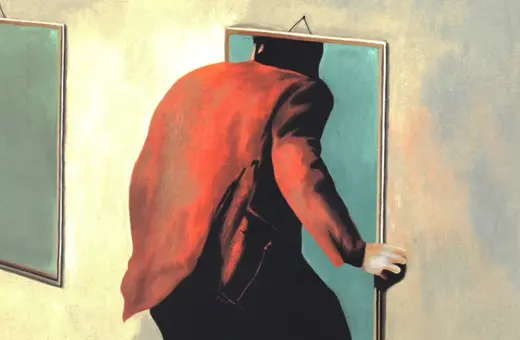Abortions have always taken place, even when they have been illegal. But banning abortion in the age of online surveillance is something entirely new. Even though online data is anonymized, by combining a number of different data points, it’s possible for those with access to them to determine who the data belongs to. In the case of women, that can mean determining whether they’re pregnant or have had an abortion. Given that the state is both incapable and unwilling to protect online privacy – it is down to tech companies to act, limit their data collection, and protect the freedom of women, argues Nolen Gertz.
“Forced motherhood results in bringing miserable children into the world, children whose parents cannot feed them, who become victims of public assistance or ‘martyr children.’ It must be pointed out that the same society so determined to defend the rights of the fetus shows no interest in children after they are born; instead of trying to reform this scandalous institution called public assistance, society prosecutes abortionists…”
This quote may seem like it was from a tweet posted last week after the U.S. Supreme Court overturned Roe v. Wade, the 1973 Supreme Court decision that ruled there is a constitutional right to an abortion. But this quote was actually written by Simone de Beauvoir, who died in 1986. Thanks to the Supreme Court, though it has been almost 75 years since de Beauvoir wrote these words in her classic work The Second Sex, it might feel as though nothing has changed, that her argument that “this fervor on the part of some men to reject everything that might liberate women shows how alive antifeminism is” is as true today as when she wrote it in 1949.
Yet while the arguments concerning whether abortion should be policed may not have changed much in the last 75 years, there have been major changes in how abortion can be policed. Shortly after a draft of the Supreme Court decision was leaked, Zeynep Tufecki warned in a New York Times op-ed that “surveillance made possible by minimally-regulated digital technologies could help law enforcement or even vigilantes track down women who might seek abortions and medical providers who perform them in places where it would become criminalized.” In other words, the argument that the Supreme Court decision did not make abortion impossible even in states where abortion has become illegal—since pregnant women can either get abortion pills in the mail, or travel to states where abortion is still legal—ignores the degree to which digital technologies make it possible to not only track the activities of pregnant women, but to determine which women are pregnant, and even how far along they are in their pregnancies.
___
Given the rise of Big Data, artificial intelligence, and facial recognition algorithms, it is becoming easier and easier to conduct surveillance and harder and harder to avoid it.
___





















Join the conversation